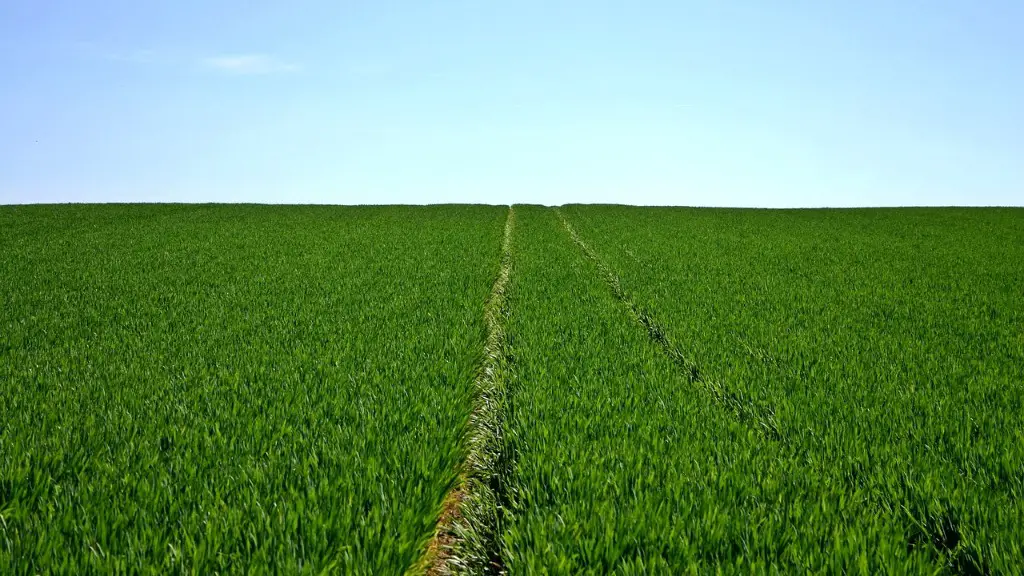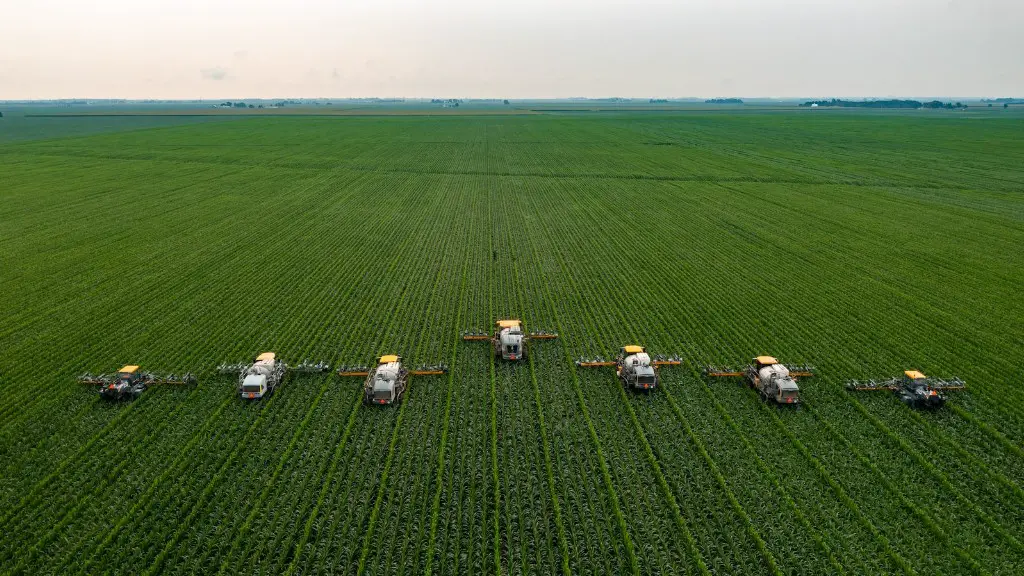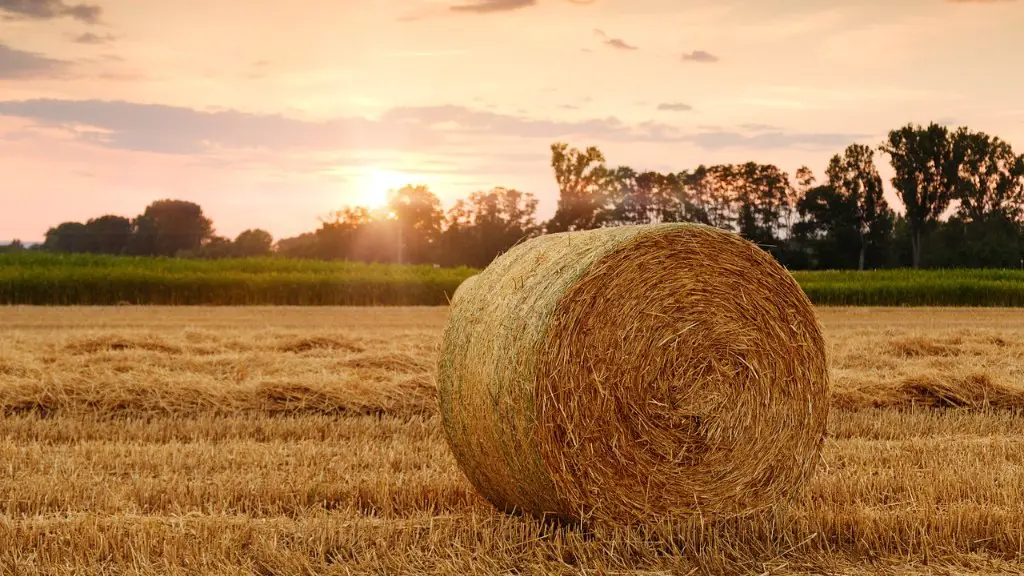The earthworms play a vital role in agriculture. The earthworms loosen and aerate the soil as they burrow through it. This helps the roots of plants to grow more easily and also encourages earthworms to cast their burrows which are beneficial to the plant life. The earthworms help in the decomposition of organic matter and convert it into humus, which is a rich source of nutrients for the plants.
Earthworms are essential to agriculture as they help to aerate and break up the soil, allowing water and nutrients to reach the roots of plants. They also help to control pests and diseases by consuming organic matter and aerating the soil.
What is the agricultural importance of earthworms?
Earthworms are beneficial to farms because they help to increase nutrient availability, improve drainage, and stabilize the soil structure. Their activity in the soil helps to break down plant debris and manure, making it easier for plants to absorb nutrients. Additionally, their burrowing helps to aerate the soil and improve drainage.
Earthworms can help to improve the quality of the soil in an ecosystem by their feeding and burrowing activities. This can help to enhance decomposition, humus formation, nutrient cycling, and soil structural development.
What is the role of earthworms in agriculture What is vermicomposting
Worms are often used to manage agricultural wastes, such as dairy manure. They convert waste into worm manure (also known as worm castings), a nutrient-rich, biologically beneficial soil product. Vermicomposting is the use of worms as a composting method to produce vermicompost.
Earthworms help improve soil quality by pulling organic material down into the soil. Their casts also give the soil an ideal, crumb-like texture. In addition, earthworms help control nematode populations and pathogenic fungi in soil by ingesting them along with the organic material.
What would happen if earthworms went extinct?
Earthworms play a vital role in the ecosystem, and without them, life as we know it would be in danger. Earthworms help to aerate and improve the quality of the soil, which in turn helps plants to grow. They also help to control pollution and flooding. Without earthworms, the planet would be a very different place.
Earthworms are important for the ecosystem because their activities help to create a drilosphere. This is a term used to describe the area around the earthworm where there is an increased amount of organic matter and minerals. This helps to improve the quality of the soil and the plants that grow in it.
How do earthworms benefit the soil?
Studies of earthworms in agricultural settings have found that earthworm burrows can improve water infiltration and soil aeration, and their castings (excrement) form soil aggregates by combining minerals and organic matter. Earthworm activity can also relieve compaction and make nutrients available to plants. These findings suggest that earthworms can play an important role in improving the health of agricultural soils.
Earthworms play an important role in vermiculture, as they help to produce quality manure. They are also used as baits for fish catching, as they can interchange the topsoil with the layer just below, increasing soil fertility. The excreta of earthworms is rich in the nitrogenous matter and is required for plant growth.
How do earthworms make soil fertile
Earthworms are beneficial for soil health as they help mix soil layers and bind the soil with organic matter. This combination allows organic matter to disperse through the soil and also allows plants to access the nutrients they need for growth. Earthworms also help improve the soil’s fertility, making it more productive for agriculture.
Earthworms consume organic matter as they crawl through the soil. In doing so, they break down the matter and produce worm castings, which are rich in nutrients, humus, and microorganisms. This process also mixes and aerates the soil.
What is worms in agriculture?
Here at Worm-Farm we believe that everyone can and should be doing their bit to help the environment, and what better way to do that then by utilising something that would otherwise be classed as waste, and turning it into a valuable resource!
Worms are amazing creatures, and are able to break down all kinds of organic matter, including food scraps, garden waste and even animal manure. The resulting product – worm manure – is an incredibly nutrient-rich fertiliser that can be used to help grow all kinds of plants, vegetables and fruits.
Not only is worm farming great for the environment, it’s also great for your wallet! By utilising products that would otherwise be thrown away, you can save yourself a lot of money on expensive fertilisers and soil enhancers.
So why not give it a go? It’s easy, it’s fun, and it’s rewarding – both for you and the planet!
Worm farming can help reduce household waste, as you can use it to process food scraps and other organic materials rather than send them to landfill. Using a worm farm can also help improve your soil, as the worms help to aerate and improve drainage while also adding nutrients to the soil. Worms also help to protect water quality by filtering out harmful bacteria and other pollutants from the water.
What two important roles do worms play in the food chain
Microorganisms play an important role in the nitrogen cycle by performing nitrogen fixation. This process converts atmospheric nitrogen into a form that can be used by plants. Microorganisms also play a role in carbon dynamics by producing organic matter that is essential for plant growth.
Earthworms are small creatures that play a big role in the ecosystem. They help to aerate and fertilize soil, which makes it more productive. They also provide food for other animals.Earthworms may live up to eight years, but one to two is more likely. The full size for an earthworm varies among species, ranging from less than half an inch long to nearly 10 feet. The latter monsters don’t occur in US backyards—you’ll have to go to the Tropics to see one of them.
How long do earthworms live for?
An earthworm’s lifespan is dependent on the conditions of its environment. Earthworms that live in rural areas with rich soil and plenty of moisture can live up to eight years, while those in city gardens usually only last for 1-2 years. Many earthworms die from changes in the soil (eg. drying or flooding), disease, or from predators such as birds, snakes, small animals and large insects.
In areas where earthworms are present in large numbers, they can cause significant damage to the local ecosystem. Soil erosion and leaching of nutrients can reduce the productivity of forests, and ultimately degrade fish habitat. Without earthworms, a lush forest floor can be beautiful and healthy. However, once earthworms invade, much of the beauty is gone.
Warp Up
Earthworms are an important part of agriculture as they help to aerate and mix the soil as they burrow through it. This action loosens the soil and helps to improve drainage and water infiltration. Additionally, earthworms consume organic matter and excrete castings that are high in nutrients, improving the fertility of the soil.
The small, soil-dwelling earthworm is an unsung hero of the agricultural world. By breaking down organic matter and aerating the soil, earthworms play a critical role in plant growth and health. They also help reduce soil erosion and improve water infiltration and drainage. In short, earthworms are essential for sustainable agriculture.





